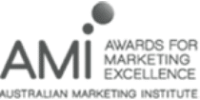Website Speed Optimisation: 7 Ways to Speed Up Your WordPress Site

Contents
- Choose a reliable web host
- Invest in a good CDN provider
- Update your website constantly
- Install a caching plugin to your site
- Limit the image sizes in your website
- Install only necessary plugins to your site
- Clean your site database regularly
- Conclusion
Nowadays, the internet powers everything. Everybody is connected by an invisible string of connection which makes transactions and business as easy as a pie. However, it doesn’t come without its downside. As everybody is on the internet, the need for good and speedy access to internet connection is a need in order to make everything as seamless as possible.
WordPress has been one of the veteran names in the field of website building. About 35% of the websites on the web are powered by WordPress. That’s more than a quarter of the millions of sites online! As such, it is one of the platforms used by many entrepreneurs and people in general, to promote their business and content. If you’re just starting out your online presence, with the influx of these sites, you’ll want some hacks to optimise your site.
Stay ahead of the game and have your site load as fast as it should be. If you want ways to fasten up your website and make it stay up to its speed, these are ways for you:
Choose a reliable web host
Your key to a fast website starts with a reliable web host provider. As your site grows, you’ll need good online storage for all the data and the information you have. Building a website involves and costs a lot of storage. This is where a web hosting provider comes in. They will store all your data for a package and respective cost. However, sharing a web host with other people running their own website can drastically affect the speed of your own site.
Invest in a good CDN provider
Another aspect you’ll need to consider in setting up your website is your geographical demographic of your website. If you’re focusing on a target audience near the area of your server, then the loading times of your website will definitely be faster.
However, what if you want to expand and share your website to a certain city or area? You wouldn’t want to limit your website only to your specific location if you plan on sharing your site somewhere else.
This is where a CDN comes into play. A CDN (Content Delivery Network) is a geographically distributed server. Invest in a good CDN provider in your target locations. This reduces the geographical distance from your server to your target area, making your website faster. Moreover, for many web hosting providers, there are packages that already include a CDN for your website. All you need to do is choose a service that fits your needs.
Update your website constantly
Your website must not remain stagnant. You will need to constantly update it to make sure that everything is still in place. The more interaction your site has, the more difficult it can sometimes get to manage it. With many things going on, you should be able to fine-tune it constantly. WordPress also has constant updates to increase and improve its efficiency. Any bugs or mishaps can make your site load slower, go wrong and inaccessible to your audience.
Always double-check and run through your site as much as possible. Tweak or add a few features or new aspects that can be effective in maintaining your site’s appeal and speed. Especially if you plan to expand your site and share it across so many people.
A good website can load in less than 2 seconds. Update your site to keep it up to speed and glitch-free. You wouldn’t want your site visitors to have a bad experience with your website.
Install a caching plugin to your site
There are ways to make sure that your site can load faster. Install a cache plugin to your website. Cache plugins make a shortcut in loading your website. Whereas web host providers deliver your stored website from your subscribed server, cache plugins make a copy of your site so that every time someone types in your web address, the copied version is there. This makes it faster than usually fetching your site from a server.
For much bigger sites, having a closer copy of your contents can save time it takes to load it. It’s like having a more accessible, mini version of your site data. There are many caching plugins available for you to install for your website.
We recommend testing the following and seeing what best works for your website:
Limit the image sizes in your website
Other forms of content can make your website extra engaging and appealing. Apart from text, some of the things you might want to add are images, videos, gifs or animations. This can make your website more engaging. However, these kinds of content can rack up the size that your website will take up. Even more so, the bigger its size, the bigger storage it takes. This also means the more time it takes to load your site.
Images alone can consume megabytes of storage. Limit your file sizes and explore other formats of images to make your website more efficient. The smaller the size of the images, the less time it takes to load it.
Install only necessary plugins to your site
Having plugins on your website can be very helpful in keeping your website in shape. It can also help you in managing your website. However, plugins can be a double-edged sword to your website. These plugins will serve their functions and purpose, but they add in the time it takes to load up your website. As such, to keep the speed of your website, only install necessary plugins to keep it running.
The rule of thumb is to have around ten plugins. This is enough to make your website comfortable enough to run but not too much that it bloats your website. Install plugins that are well-coded and run faster. They help in keeping your website easier. Moreover, always uninstall plugins that are not in use.
Clean your site database regularly
As your site interacts with more people, the more things go on with it. This also corresponds to the consumption of more space for your website. Data is constantly piling up. Information is always changing and adding to your site. This slows down the loading time of your site. Make sure to perform a cleanup of your database from time to time. The more data stored in your site, the more time it takes to load and to run. The slower your site will be.
A database cleanup also means more free space. Organise your database and clear them out of unnecessary information that is not pertinent to running your sites. Sometimes, old data and information aren’t really needed but are still present in your servers. If you want to dissuade your visitors from accessing your site, making it slow is a good way. However, we are all about having a wider audience scope for your website, so clean it up regularly.
Conclusion
Everything is getting more interconnected with the internet. As your web needs increase, you’ll need someone to handle and help you manage it.
At G Squared, we offer leading WordPress web development services to help bring your project to life. Call us today on (02) 9339 4500 and brief us on your requirements.
Our awards.














More brands that we’ve helped.
























Featured insights from our team.


